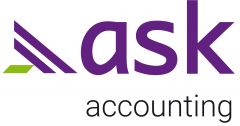Probity – you’ll often see this word coming up in your auditors’ material. What is probity in school accounting and what does it mean for my school?

Probity means acting ethically and fairly. For probity in a school accounting situation, school funds, which are public funds, should be spent appropriately. Board of Trustees are responsible for ensuring this happens.
Examples
Some examples of a lack of probity include:[1]
- Excessive hospitality/entertainment. For example, end of year functions at expensive venues, with partners attending at school expense.
- Spending by principal and/or BOT for transactions that are not related to the running of the school. Think of things like:
- overseas or national travel for school staff for planning meetings/PD
- paying the costs for the spouse of a principal on an overseas trip
- the purchase of a vehicle for the principal.
- Advances to staff – the school is not a bank!
- Not getting competitive tenders for large contracts.
- BOT members or staff being involved in decisions where there is a conflict of interest.
- Using the school resources for personal benefit, for example, the school credit card. Never use the school credit card for personal purchases. Even if it just a small amount. And if you inadvertently use the card, reimburse the money as soon as you find the error.
You can’t justify this type of expenditure by saying it “has been funded by our fundraising”, or “the surplus in our international student ledgers”. Any money that comes into a school automatically becomes public funds. As such, you have a responsibility to spend it appropriately.
Consider whether any resulting publicity would adversely affect the school. Could you justify this spending in a TV interview? How would it affect your school if it was reported in a newspaper article?
[1] Hayes Knight, School audits: The challenges, 8 June, 2012, accessed 2 May 2020 https://www.hayesknight.co.nz/school-audits-the-challenges/
